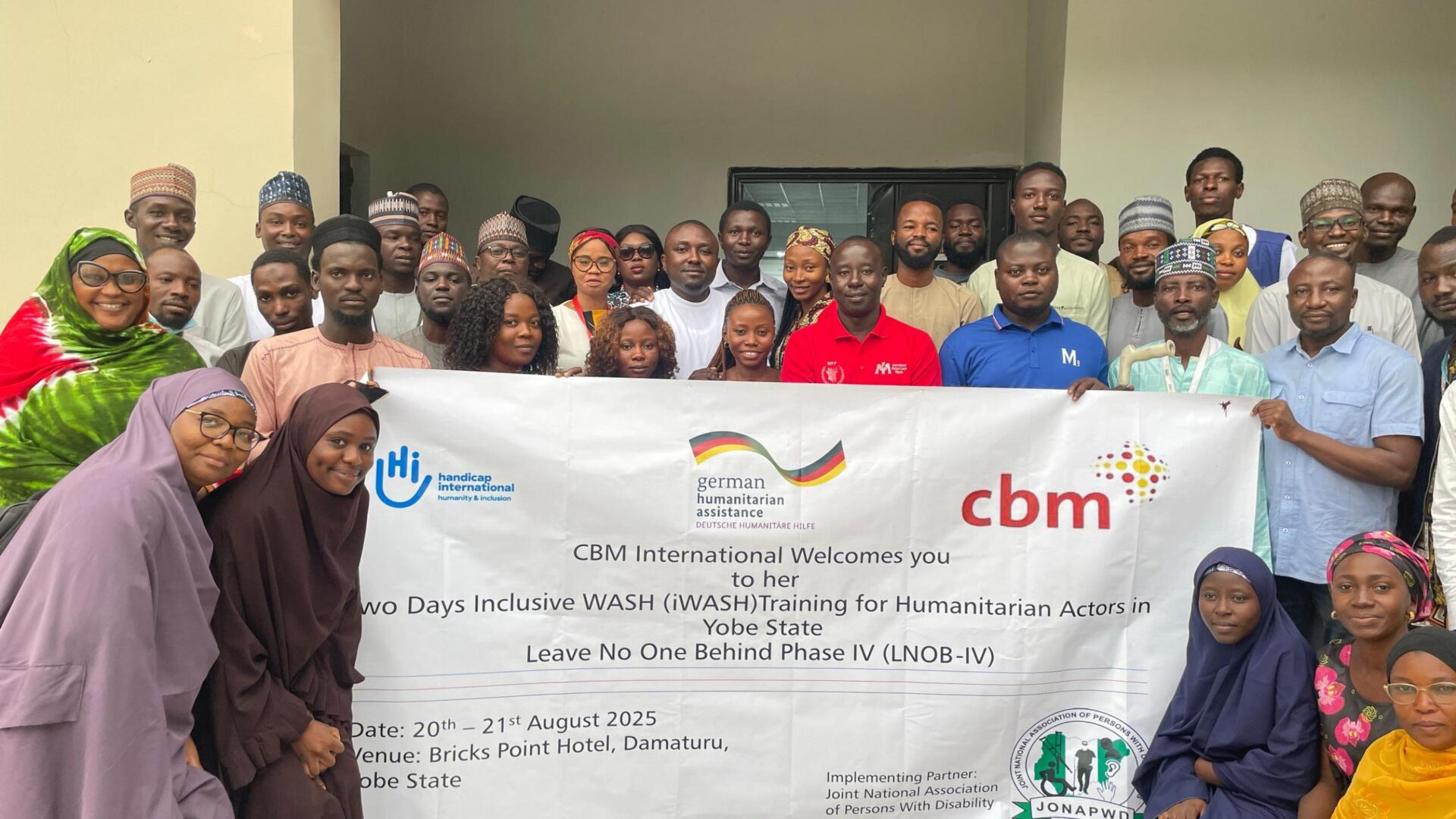Strengthening Inclusive WASH in Yobe State: LNOB Phase 4 Training
Category
Capacity Building General Nigeria
© CBM
As part of the ongoing efforts under the Phase 4-Leave no one behind! – project, a two-day capacity-building training on Inclusive Water, Sanitation and Hygiene (WASH) was conducted from August 20 to 21, 2025, in Damaturu, Yobe State. Hosted at Bricks Point Hotel, the training brought together WASH actors and stakeholders committed to advancing inclusive WASH practices in humanitarian and development settings.
The training aimed to bridge knowledge gaps and strengthen the capacity of WASH actors to implement inclusive programming that ensures no one is left behind, through the uptake of the Inter-Agency Standing Committee (IASC) Guidelines on Inclusion of Persons with Disabilities in Humanitarian Action.
A total of 44 participants attended, representing various organizations and sectors engaged in WASH interventions across Yobe State. The sessions were facilitated by two trainers from Christian Blind Mission (CBM) and one from Joint National Association of Persons with Disabilities (JONAPWD)—the implementing partner of the LNOB project – who provided practical tools and insights to help mainstream disability inclusion in WASH programming.
Prior to the training, a knowledge assessment revealed a 38.3% gap in participants’ understanding of inclusive WASH practices. Following the training, a post-assessment showed a 65.3% relative gain in knowledge, highlighting the effectiveness of the sessions. Through interactive modules, group work, and real-life case studies, participants explored the barriers faced by persons with disabilities in accessing WASH services and learned how to address them using inclusive design and participatory approaches.
This training marks a significant step forward in ensuring that WASH interventions in Yobe State are inclusive, equitable, and aligned with global standards following the participants commitment at the end of the training.
Text by Karagama Ishaku, CBM, Nigeria
